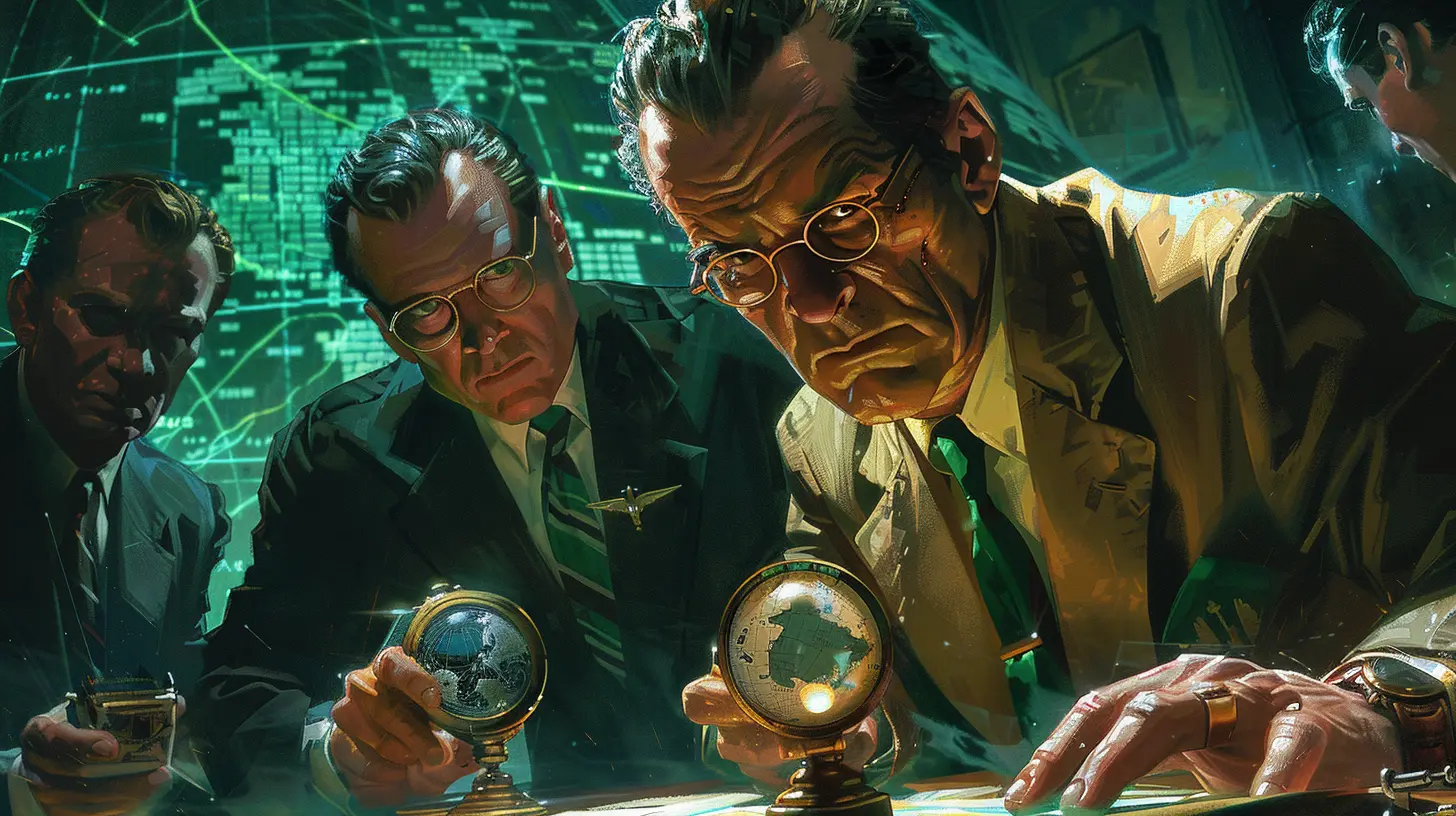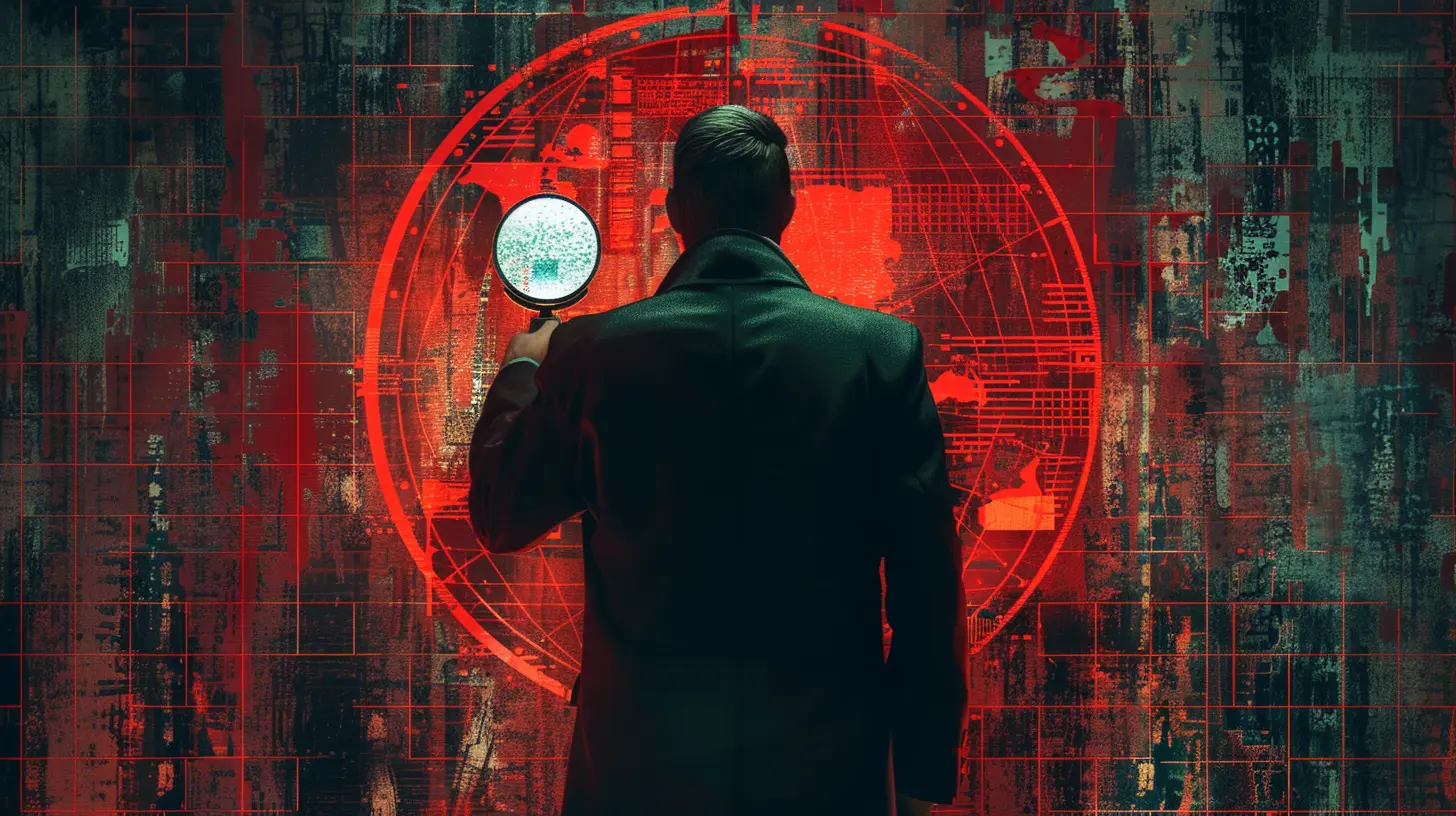The Role of Espionage in Shaping Your Strategy
1 September 2025
When we hear the word "espionage," images of shadowy figures in trench coats and sunglasses tend to pop into our minds. It’s that classic spy-movie vibe, right? But espionage isn’t just about sneaking around and collecting secrets—it’s actually so much more than that. At its core, espionage is about gathering knowledge and using it to outsmart the competition. And here’s the kicker: this principle works far beyond the realm of spies and secret agents. It’s the kind of strategy that can help you level up in gaming, business, and even life.
So, how does espionage shape strategies? And more importantly, how can you apply it in your own pursuits? Let’s break it down together.
What Is Espionage and Why Does It Matter?
Before we dive into the nitty-gritty, let’s cover the basics. Espionage is all about gathering critical information—whether it's about your opponent, your environment, or even yourself—and using that intel to make smarter decisions.Think of it like studying for a test. You don’t walk into an exam blind, do you? You prepare by reading, researching, and practicing. Espionage works the same way. It’s about collecting information so you’re not caught off guard, whether you’re navigating enemy territories in a game or trying to outmaneuver competitors in the real world.
The Art of Knowing: Knowledge Is Power
Ever heard that saying, “Forewarned is forearmed?” Espionage is literally the embodiment of that phrase. The more you know about your opponent, the better prepared you’ll be to counter their moves. And here’s the thing: it’s not just about knowing what’s coming—it’s about knowing the why behind it.Take strategy games like Age of Empires, StarCraft, or even Civilization. If you know your opponent is stockpiling resources, you can guess they’re gearing up for an attack. That’s your cue to reinforce your defenses or, better yet, launch a preemptive strike. Without espionage—without knowledge—you’d be flying blind. And let’s face it, the success rate of blindfolded strategizing isn’t exactly great.
Espionage in Gaming: When Spying Makes You a Genius
Gaming is a perfect playground for testing out the power of espionage. Whether you're a hardcore gamer or just dabble on weekends, you’ve probably used some form of espionage without even realizing it.Reading Patterns
Ever notice how some players are predictable? Maybe they always rush the same lane in a Battle Royale or spam a specific move in a fighting game. Observing their patterns is a form of spying. You’re essentially gathering intel on their habits, which you can then use to counter them.In real life, this “pattern-reading” could help you anticipate market trends, negotiate better deals, or even predict someone’s behavior in a competitive setting. It’s all about staying a step ahead!
Reconnaissance in Open-World Games
Games like Assassin’s Creed or Far Cry often reward you for scouting enemy territories before diving in. You know, marking guards, locating their weak points, and planning your attack? That’s reconnaissance—another fancy spy term for gathering intel. This step is crucial because charging headfirst into the unknown almost always ends in disaster.Whether on the battlefield or in life, jumping in without a plan is like playing darts blindfolded—you might hit the target, but chances are, you’ll miss by a mile. Espionage helps you see clearly.
Real-World Applications of Espionage Strategies
If you think espionage is just for video games or spy novels, think again. The principles behind it are everywhere—especially in competitive environments like business, sports, and even social situations. Let’s connect some dots, shall we?Business: Outplaying Your Rivals
In business, espionage equals market research. Companies don’t just wing it when launching a product. They dive into data about competitors, audience preferences, and industry trends. By spying (in an ethical, legal way, of course), they can position themselves for maximum success.For example, let’s say you run a small bakery. If you notice the cafe down the street is killing it with gluten-free options, you might want to consider adding such items to your own menu. That’s espionage in action—gathering intel and using it to stay competitive.
Sports: The Tactical Edge
In sports, espionage is as simple as watching game tapes of your rivals. Teams study their opponents’ plays, strengths, and weaknesses before they even step onto the field. It’s not cheating—it’s strategizing.Life works the same way. Let’s say you’re interviewing for a job. Researching the company, the role, and even the hiring manager gives you insight into what they’re looking for. That’s your tactical advantage, right there.
The Ethical Side of Espionage: Not All Spying Is Equal
Now, here’s a quick caveat: not all espionage is good espionage. There’s a fine line between savvy strategizing and downright cheating. In gaming, hacking your opponent’s data or exploiting glitches is a no-go. In real life, shady tactics like corporate espionage can land you in serious trouble.The key is to approach espionage ethically. Focus on publicly available information or fair gameplay mechanics. Think of it as gathering intel in a way that respects the game—whether it’s virtual or real-world.
Espionage and Adaptability: Why Flexibility Makes You Unstoppable
Alright, so you’ve got the intel. What now? Here’s where espionage and adaptability go hand-in-hand. Intel is useless unless you’re willing to adjust your strategy based on what you’ve learned.Let’s circle back to gaming for a sec. Imagine you’ve spied on your opponent and discovered they’re building an army of tanks. What’s your move? If you’re smart, you’ll pivot your strategy to counter that. Think anti-tank weapons, ambushes, or setting up traps. Sticking to your original plan despite new information? That’s a rookie mistake.
In life, adaptability is just as important. Maybe your dream job turns out to be different from what you expected or a long-term goal suddenly feels irrelevant. The ability to change course based on new “intel” is what separates winners from those stuck spinning their wheels.
How to Incorporate Espionage Into Your Strategy
At this point, you’re probably wondering, “This sounds cool, but how do I actually use it?” Don’t worry—I’ve got you covered. Here are some tips for incorporating espionage into your strategy, whether you’re gaming, running a business, or simply navigating life.1. Observe and Analyze
Pay attention to patterns, behaviors, and trends. Write them down if you have to. The more data you collect, the more informed your decisions will be.2. Use Reconnaissance
Scout ahead whenever possible. If you’re trying something new—be it a game level, a career move, or a business venture—dip your toes in first. Test the waters before diving headfirst.3. Adapt Based on Intel
Don’t just gather information—use it. Adjust your strategy based on what you’ve learned, even if it means abandoning your original plan. Flexibility is your superpower.4. Stay Ethical
Always play fair. Cheating might give you a short-term win, but it almost always backfires in the long run.Final Thoughts: Espionage as a Life Philosophy
At the heart of it, espionage isn’t about deception or trickery—it’s about being smart, prepared, and adaptable. Whether you’re gaming, competing in the workplace, or tackling life’s challenges, the principles of espionage can help you stay one step ahead.So, the next time you’re strategizing, ask yourself: Do I have all the information I need? Am I considering every angle? How can I use what I’ve learned to outplay the competition? Channel your inner spy, and watch your game—whatever it may be—reach new levels.
all images in this post were generated using AI tools
Category:
Strategy GamesAuthor:

Audrey McGhee
Discussion
rate this article
2 comments
Kristen Cook
Espionage adds depth to strategy games, creating tension and enhancing decision-making. It's essential for immersive gameplay.
November 28, 2025 at 5:42 AM

Audrey McGhee
Thank you for your insights! I completely agree—espionage indeed adds a vital layer of complexity and immersion that can transform strategic gameplay.
Rachel Mason
Great article! Understanding how espionage influences strategies can truly elevate gameplay. The insights on gathering intel and countering opponents' moves are particularly valuable. It's fascinating how information can shift the balance of power in games. Looking forward to applying these tips in my tactics!
September 3, 2025 at 3:41 AM

Audrey McGhee
Thank you for your kind words! I'm glad you found the insights useful. Best of luck with your tactics!


